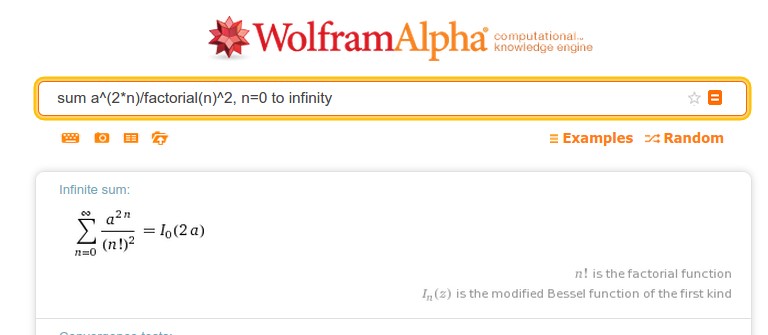Let $(p_k)_{k=0, \dots, \infty}$ denote the probability masses of a Poisson distribution with parameter $\lambda$. I'm looking for the sum of their squares, $$\sum_{k=0}^\infty p_k^2,$$ as a function of $\lambda$. In other words I am interested in (the exponential of) the second-order Renyi entropy of a Poisson distribution.
Background:
I'd like to use this to evaluate Brier and spherical scores.
Czado et al. (2009) write that this expression can be evaluated analytically, but don't give further information, and I'm kind of stuck.
No, this is not homework, although I imagine it could be ;-) Any hints or pointers to literature would be almost as much appreciated as a full solution.
Here is the analogous question for the Negative Binomial distribution.

